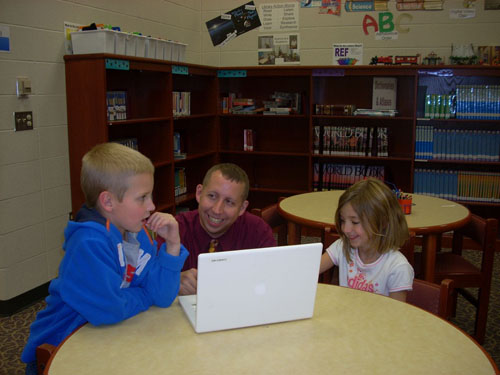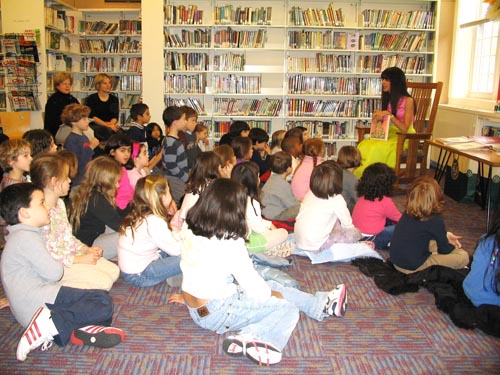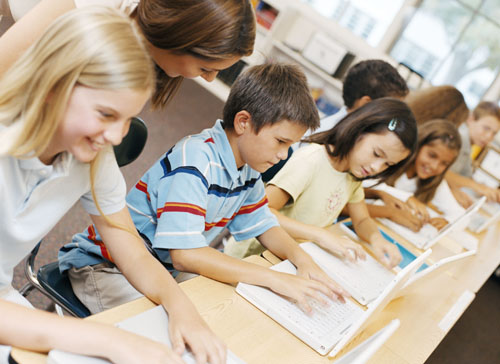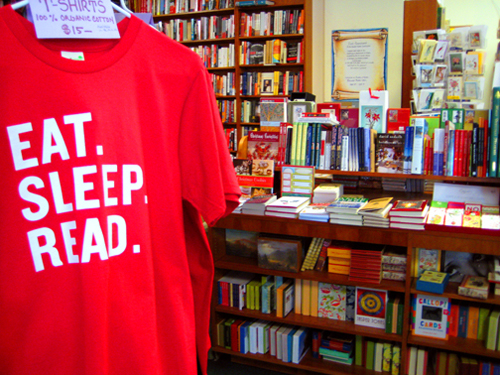
Hogyan kell a szerepe az iskolai könyvtár és az iskolai könyvtáros fejlődni a 21. század iskolája?
Időnk az információs korban. Sok egyedülálló előttünk álló kihívásokat kapcsolódó információkat, mint a pontosság, tulajdonjog, elérhetőség és a magánélet. Lifestyles több hektikus, mint valaha, ami azt jelenti, hogy szükségét érzik, hogy feldolgozza az információkat gyorsabb. Úgy tűnik, gyakrabban, mint valaha hallunk aggodalmak hiánya médiaműveltség. Whom or what can we trust? Both formal and informal sources of information have been challenged. What does this mean for our children? Naturally that depends on the kind of society we want to create. Azonban, I think we would all agree that it is essential we help our children navigate and interpret the vast complex pool of material they are exposed to so as to make informed judgments both as users of information and as future creators of information. Has there ever been a time in our history more crucial for kids to have the right kind of support?
I had the pleasure to chat with Carl Harvey, President of the American Association of School Librarians about the SKILLS Act (Strengthening Kids’ Érdeklődést a tanulás és könyvtárak) többek között kapcsolódó hatásának 21. századi iskolai könyvtárak a nevelési folyamat, valamint a főiskolai és karrier készültség.
Carl, mik a problémáiba 21. századi iskolai könyvtárak?
Azt hiszem a legnagyobb problémáira iskolai könyvtárak azonos problémáiba oktatás egészének: budgets and funding. I think schools are grappling with those issues on every level. We are trying to get the funding that we need for collections, személyzeti és egyéb források.
I think there is also a perception that if we don’t have the paper books then we don’t need the library or the librarians in schools. I think it’s flawed logic. Information is changing its format; igen, ez az online, ez egy ebook, ez egy könyvet lehet letölteni rá egy iPad, but it’s still information. Kids need to know how to evaluate it even more so now than before because there is much more of it. Kids need to be able to determine whether it is useful or valid information. Librarians take the lead in helping educate students through the information jungle, and with even more sources and formats, the role of the librarian becomes even more critical. So even though paper books are becoming less prominent, the skills needed are even more advanced than what was needed before. Iskolai könyvtárosok kritikus hogy segítse a diákok eligazodni ebben információs robbanás.
Melyek a legfontosabb változások 21. századi iskolai könyvtárak kell, hogy továbbra is vonzzák a hallgatói közönség?
I think school libraries are looking at ways that kids can work in small groups. Libraries are not a quiet place anymore. There are lots of activities and classes going on, beleértve az oktatást, megnézni anyagok, így a speciális hangszórók, így a közösségben, hagyta, hogy a gyerekek végre, and setting up a café or a special place like that. Libraries are always looking at services they can provide to their patrons. I think the other thing that is the big draw is that when you come to that library you also have that librarian. You have someone you can quickly go to for help in terms of facilitating your project. If a kid is off somewhere by himself, he may not have that support or service. And so I think all those things combined create a place where kids want to go.

What will 21st century school libraries do as digital books become more and more accessible?
I think we will do what we’ve always done each time we got a new format, such as audio books and video tapes. We figure out what is the best way to provide those types of resources for our patrons. What is more difficult with ebooks is the vast amount of different readers that are out there. It is therefore a more complicated issue to figure out. Right now you are seeing different pockets of people trying different things to try and figure out what might be the best plan, and I don’t know that the best plan exists yet. We have a product here called myOn Reader which uses ebooks from a library publisher. We also have Playaways. We also have ebooks from other publishers’ catalogs, so there are many different things which we are exploring, trying to see what might be the best system. At this point it’s all still new and people are trying to figure out what the best model is going to be. We have students with many different devices (or no devices), so how do we make sure the resources we’re purchasing can work on a multitude of platforms and devices? How do we provide access for students who don’t have devices? Lots of issues to consider.
So if I asked what is the timetable to opening library doors to a digital library what might your response be?
There are school libraries that are already doing that but there is not a consistent way across the country that this is being done. We’re asking ourselves: what are my patrons asking for? That’s what we need to figure out. It’s in process. Ebooks is a very hot topic in our field at this point.
Why is the Skills Act so important?
(hangjegy: The Skills Act was conceived to help improve student achievement by ensuring more students have access to effective school library programs that will allow them to compete in today’s information age. The Skills Act would provide more funding to enhance library programs such as digital literacy instruction for librarians, increased staffing levels in school libraries, better co-ordination between librarians and teachers, and reducing the “access gap” between schools in wealthy communities versus those where there are high levels of poverty.)
When “No Child Left Behind” was passed, school libraries were not mentioned at all in the legislation. Our hope with the Skills Act is to put school libraries in and be recognized as a vital part of the school ecosystem and as important educators in the school system. The Skills Act asks that government support school library programs so that they support all students. We are trying to paint the picture of what a 21st century school library should look like — a digital collection with digital resources as well as print. We’re trying to get some funding for school libraries targeted from the Federal level. További információ: http://www.ala.org/aasl/congressionalbriefing
A végső gondolatait 21. századi iskolai könyvtárak: Ők miért olyan fontos része a kultúrának, és miért kell továbbra is támogatjuk őket?
I think all libraries in general provide their patrons access to information whether online or print. That access is a core value. School librarians are also teachers. And so their role is to help students figure out how they get through all of the information that is out there. How do I figure out if this is valid? How do I figure out if this is relevant? As information continues to explode, there is a limit as to how much content school is going to be able to cover in K through 12. Ezért, we have to provide our kids with processes and systems to deal with all the information they are going to get beyond the content that they get in school, so that when they leave us, they can find the information they need for their job and figure out how to use it effectively. I think that the school library’s place is to help with that process.

Photos courtesy of Carl Harvey and Henmead Enterprises, Inc.
Hogyan fogjuk olvasása? Közösségi oldal
További Hogyan fogjuk Olvasd? cikkek: Kattintson ide
C. M. Rubin a szerző két legolvasottabb internetes sorozat, amely megkapta a 2011 Upton Sinclair díjat, "A Global Search for Education" és "Hogyan fogjuk Olvasd?"Ő is a szerző három eladott könyvek, Beleértve The Real Alice Csodaországban.





Legutóbbi hozzászólások